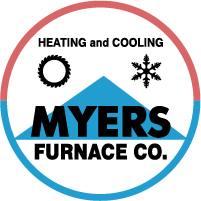
To combat increasing energy expenses and embrace sustainability, many homeowners are trying new methods to maintain comfort levels while using less energy. With help from the Inflation Reduction Act, federal tax credits are available for high efficiency HVAC equipment. These credits offer a big chunk of the installation costs, as long as the homeowners select qualifying equipment and submit the appropriate form.
If you’re concerned the application process might be tedious, we can share something that will help! Myers Furnace Company hopes this guide will give you what you need to secure 2024’s HVAC tax credits. Here’s what you should know.
How Do These Tax Credits Work?
These valuable tax credits for upgrading your home to be more energy-efficient are just one intended use of the recent Inflation Reduction Act. With the higher cost of energy making an impact, helping more homeowners upgrade their equipment is always beneficial. The key provision of these credits is to reduce the cost of installing high efficiency upgrades. Two of note are the Energy Efficiency Home Improvement Credit and the Residential Clean Energy Credit.
But keep in mind, to be eligible for tax credits, you’ll have to fill out IRS Form 5695. Additionally, this form has to be submitted during the same tax year any upgrades were installed, not bought.
Energy Efficiency Home Improvement Credit
Through 2032, the Energy Efficiency Home Improvement credit empowers homeowners by offsetting up to $3,200 every year for installing higher efficiency home upgrades. This can be up to 30% of the total project’s cost. It's important to note in order to get back the maximum amount, it involves making different investments. For example, you’ll get up to $2,000 for high efficiency heat pump systems. This can be paired with an additional $1,200 in credits for more projects in the tax year.
While heat pumps are a great use of the program, high-efficiency furnaces, air conditioners, boilers, and other HVAC systems are still eligible for this tax credit. You’ll need to confirm the make and model’s energy efficiency rating is sufficient to qualify.
Residential Clean Energy Credit
The Residential Clean Energy Credit offers 30% savings on a number of other residential clean energy equipment upgrades. Eligibility only applies to homeowners looking for new clean energy solutions for their home. While the Home Improvement Credit highlights utilities and HVAC systems, this credit targets renewable energy sources like solar and wind energy.
Some specific items in this tax credit include the requirement that installation must occur between 2022 and 2032. But at the same time, homeowners can use any excess credit to reduce taxes in future years. This is a great way to make things a little easier when investing in renewables.
What Else Is Eligible for These Tax Credits?
Because HVAC systems are one of the major reasons for high energy bills, these tax credits can guide you to the most energy-efficient options. But home energy efficiency can be improved in lots of other ways. Apart from the previously listed HVAC upgrades, {you could also choose|other eligible items include|you also have access to:
- Energy-saving heat pump water heating systems
- Electrical panel upgrades
- New electrical wiring
- Enhancements to insulation, air sealing, and ventilation
- High-efficiency electric stoves, cooktops, ranges or ovens
- Efficient heat pump clothes drying solutions
- High-efficiency water boilers
Just like with installing one or more HVAC systems, you’ll need to confirm that your preferred make and model features the required energy efficiency ratings.
Three Tips for Making the Most of 2024 HVAC Tax Credits
While all the listed upgrades can boost home energy efficiency, some planning ahead will ensure the best chance at more long-term benefits. Maximize your HVAC tax credits with these three tips:
- Conduct a home energy audit to identify impactful upgrades. Rely on professional HVAC assessments for crucial advice.
- Install new high efficiency windows and doors.
- Explore potential rebates from utility companies for clean energy upgrades. Renewable sources like solar, wind, and geothermal contribute to community power grid sustainability.
- Don’t forget financing options from local service companies, which can help reduce costs even more.
Secure Your 2024 HVAC Credits with Help from Myers Furnace Company
Partner with local HVAC professionals like Myers Furnace Company for help with home energy audits and new installation projects. Our helpful installers know how to provide all you need for a more energy-efficient home.
